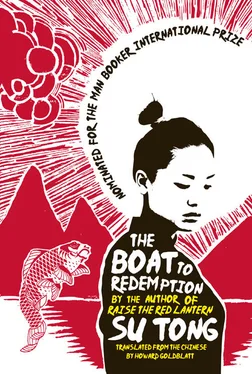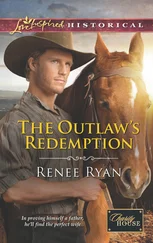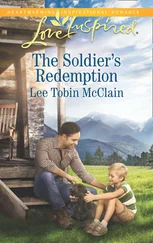As I passed the darkened culture hall I noticed shadowy objects on the remains of the open-air stage. Someone had tossed a broken chair on to the stage, and in my mind’s eye I saw a pair of shamed figures being pushed up on to the stage: my father and me. I was standing, hands tied behind my back; Father, naked, was sitting in the tilting chair, head bowed as he revealed his disfigured penis to the crowd below. ‘I’m not guilty of anything,’ he said, his grey head bowed. Wind passing my ears carried the people’s angry shouts. ‘Yes, you are, you’re guilty!’ Then a barrage of arrows flew at him from all directions, and I saw my dying father, his body impaled by arrows, terror filling his eyes, turn to me and say, ‘Tell them, son, tell them whose son I am. Tell them I’m Deng Shaoxiang’s son!’
I couldn’t look at that stage or the chair any longer, so I turned and trotted over to the chess pavilion. I didn’t have anything particular in mind, but that was a place where people gathered and rumours spread, and I decided to find out from someone where Zhao Chuntang’s new home was. I was intent on rescuing Father. When I reached the pavilion, I was surprised to find the place deserted. Widow Fang had left with her stall and so had the people who had once gathered around it. I saw several oil transporters and cargo trucks in the car park, and some of the drivers playing poker on a tarpaulin they’d spread out on the ground. A man with a full beard waved to me from the cab of his truck. ‘Want a ride? Come on up, I’m getting ready to shove off. I’ll take you to Xingfu for fifty cents.’
Fifty cents to Xingfu. Xingfu again. Too bad I couldn’t go this time.
I paced the area around the pavilion, watching my shadow shrink and lengthen under a streetlamp. I was wavering. Suddenly I doubted the wisdom of coming ashore in the first place. Kongpi , that’s what my vow to Father was, kongpi ! I couldn’t find Zhao Chuntang, but even if I could, what could I say to get him to go aboard our barge and apologize to Father? Nothing, unless I had a gun or happened to be his superior. I had nothing. I was nothing. Nothing but a kongpi .
I stared blankly at the partially demolished pavilion; it was hardly more than rubble. A gust of wind blew open a corner of the plastic wrapping, releasing a weird triangle of dim light that nonetheless hurt my eyes. The light unexpectedly drew me to it; I crept inside.
Workers’ tools were strewn all over the floor — hammers, pickaxes and some small jacks — but their owners were not there; nor was the idiot Bianjin. I did, however, see a pair of his geese, one of which was perched cockily on one of the hammers; the other one unforgivably stood atop the martyr’s memorial stone and was soiling it with its excrement.
It was that stone that had sent the dim light my way, presenting me with the greatest inspiration I’d ever had. It was lying on its side, secured by thick ropes, which could only mean that they would be moving it within the next few days, and when it left it would take the martyr’s spirit with it. Would they go to Phoenix in the upper reaches, or to Wufu, some forty li up the road? At that moment, a light went on in my head and I felt my blood begin to churn as a splendid, almost manic idea was born. I wanted that memorial stone. I’d make it mine by moving it to our barge. I was going to return Deng Shaoxiang’s martyr spirit to my father!
There was no time like the present. I knew I’d do it. First I kicked off the goose and wiped away some of the excrement. Then, before I started, I didn’t forget to bow respectfully. Moving something that heavy was child’s play to a boat person. Calmly and in complete control, I grasped the rope with both hands and pulled with all my might. The stone obediently righted itself and stood at the right angle for me to lift it with my arms and hip. Slowly it began to move, and it seemed to me to weigh at least two hundred jin . Experience told me that it was too heavy for one man to move, but it gave me a tremendous surprise: it was helping me along, dispensing good will and a warm feeling. The heavy stone slid easily along the cement floor, never wavering, with no doubt or hesitation, and by pulling hard, it didn’t take me long to drag it free of the pavilion. Bianjin’s geese reacted with panicky honks, which attracted the attention of the truck drivers in the car park. Thinking I was a thief, one of them stood up and, with a grin, shouted to me, ‘I knew you were a three-handed sort, the way you slinked around there. But a memorial stone? What are you going to do with that? Take it home and build a house to win a bride?’
It was a lucky break. Those truckers were all outsiders, and Milltown meant nothing to them. But their laughter brought me out in a cold sweat. This was Milltown, where everyone was on the lookout for something, and my risky adventure could be over before it really began. I had to move fast. Move fast! Fast! I kept telling myself. Fast! Move fast! I urged the stone, but, seemingly offended, it chose this moment to make a display of its dignity and flaunt its weight. Now pulling it behind me was like dragging a mountain along, and by the time I reached the path by the cotton warehouse, my arms felt as if they were about to fall off and I was gasping for breath. I had to stop. When I turned to look behind me, the first group of followers was catching up. A pair of white geese and three ducks were waddling my way, raising the alarm with their honks and quacks. Then the second wave came into view: the geese’s master, idiot Bianjin. He was brandishing a duck whistle. ‘Stop right there, Ku Dongliang!’ he shouted. ‘Kongpi, I said stop!’ His enraged shouts ripped through the night. ‘You’ve got guts, Kongpi. What are you dragging there? I told you to stop! Where do you think you’re going?’
He blew his duck whistle, which drew more geese and ducks from around the piers, and before I knew it I was surrounded by them. Everyone — man and fowl — was talking at once. The ducks’ and geese’s incomprehensible complaints fell on deaf ears, but not the idiot’s angry shouts. ‘How dare you, Ku Dongliang! I thought somebody was stealing a hammer or a jack, but no, you’re stealing the memorial stone! I never thought you’d have the guts to actually steal the martyr Deng Shaoxiang’s spirit!’
‘Stop the crazy talk, idiot. I’m not stealing her spirit, I’m taking the stone to show my father. He’s in terrible health, but this’ll cure him.’
‘You’re the idiot! That stone isn’t some magic elixir, how can it cure your dad?’ With one hand on his hip and the other pointing to his own nose, he said, ‘You’ve certainly got guts. Do you know what you’ve done? You’re an active counter-revolutionary. You can be shot for that.’
‘What do you know about active counter-revolutionaries?’ I asked. ‘Or historical ones, for that matter? With my own eyes I saw one of your geese shit on the martyr’s memorial. Come and look for yourself. If that’s not goose shit, what is it? What kind of counter-revolutionary is that goose of yours, huh? Should they take it out and shoot it?’
One look at the mess on the memorial stone and his nerves began to betray him. He looked at his flock. ‘Which one was it? Tell me. He won’t get away with it.’
‘All your geese look alike. How am I supposed to know which one it was? But if one of them shit on the memorial stone, I’m sure the others did too. They’re all counter-revolutionaries, and they’ll have to be taken out and shot.’
‘Stop trying to scare me.’ After glowering at me, he turned back to his flock and thought for a minute. Then he came up with a smart comment. ‘The goose shouldn’t have shit on it, but it’s an animal and it doesn’t know any better. Are you an animal too? Don’t you know any better?’
Читать дальше












